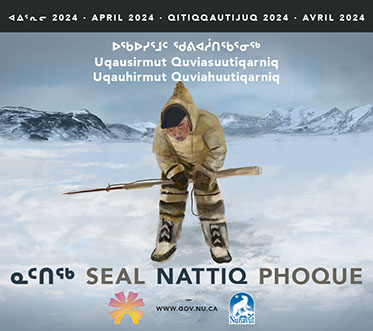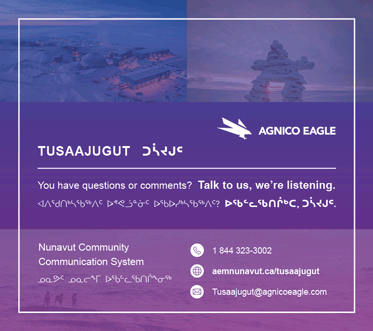Program fosters loving, non-violent relationships
“You have to learn first, the steps of self-control”
GREG YOUNGER-LEWIS
Nunavut has its own book of love.
New counsellors in the Kivalliq have compiled a guide on how to enjoy healthy romance with boyfriends, girlfriends and spouses, in an effort to wrestle down the number of abusive relationships in Nunavut.
According to one counsellor, the number one lesson is learning to control emotions like anger, and express them in ways that don’t hurt others.
“You have to learn first, the steps of self-control,” said Caroline Lafleur, project manager for the program. “You could call [the program] ‘life skills.’
“It’s how you interact with people.”
The Healthy Relationships program started in November, after organizers found a comfortable space to conduct workshops and counselling sessions in a residential house in Rankin Inlet. Counselling will run three years, through the Kivalliq Outreach Program, funded by the Aboriginal Healing Foundation, and National Crime Prevention Strategy.
Three local Inuit counsellors and Lafleur hold group sessions with people who want to improve their ability to handle their anger, and generally lead happier, more fulfilling lives. Currently, they’re focusing on youth, ages 18 to 25.
Lafleur said people who need counselling often have a hard time understanding their own behaviour.
The thick exercise book that Lafleur developed with two Inuit colleagues aims to help people express their emotions in words, and understand why they act the way they do. They begin with basic questions, such as asking a person for their definition of love. Counselling involves eight to 10 people, who meet for nine sessions, for two to three hours at a time.
While the definitions of love may vary, Lafleur said they make clear to people in counselling that jealousy does not belong in a healthy relationship.
Angie Kubluitok, one of the group’s counselors, hopes the program will fill a void that has existed for a long time.
She said judges often ask men convicted of abuse to take anger management courses, ignoring the fact that very few are available in the communities.
“There was no place for people to go for counselling like this,” Kubluitok said. “There was nothing for them.”
But the program goes beyond helping men and women improve their relationships.
One counsellor said they will also teach their clients how to recognize and free themselves of an abusive or unhealthy relationship.
Lizzie Tattuinee, who counseled youth and families before joining this program, said that many Nunavummiut get into serious relationships before they’re ready.
She said often young women get trapped in a relationship because they get pregnant and feel they have to stay with the father of their child, even if he is abusive. Others have been hurt by incest, rape, and drug and alcohol abuse.
“This is to show them that they don’t have to be in those relationships,” Tattuinee said.
Program literature notes they are trying to “break a cycle of intergenerational violence that is the legacy of the residential school system.”
Although they’re only meeting youth in Rankin Inlet right now, organizers plan to deliver the love lessons to surrounding communities in the region over the coming year. For now, they’re meeting at 103-23 Aivilik Street, also known as Carla Villa-Fanna’s old house.
Anyone looking for information can call Kathi at the Kivalliq Outreach Program, at 867-645-4878.





(0) Comments